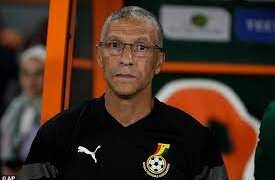The number of civilians forced from their homes by conflict in northern Mozambique has quadrupled this year – to 420,000 – according to the United Nations.
It links the crisis in Cabo Delgado province not just to attacks by Islamist militants, but to a perceived failure to distribute vast mineral and off-shore gas revenues to the local population.
“The figures are growing as days go by and this is a situation that is liable to deteriorate,” said Angèle Dikongué-Atangana, the UNHCR’s deputy director of Southern Africa, speaking to the BBC from Cabo Delgado’s provincial capital, Pemba.
Ms Dikongué-Atangana warned that the “terrorist” situation in Mozambique was beginning to resemble the long-running conflict in northern Nigeria, where the Islamist Boko Haram group has caused widespread suffering.
But as well as blaming militants affiliated to the Islamic State group who have carried out massacres and other atrocities in Cabo Delgado, Ms Dikongué-Atangana criticised the behaviour of “extractive firms” involved in gem mines and, more recently, in vast off-shore gas fields.
‘No hope, no dreams’
“If I was [born] in a place like this, which is endowed with a lot of wealth, and I see that wealth is being exploited, and I don’t see… a share of that wealth, I would also be disgruntled,” she said, warning that a generation of young Mozambicans with “no hope, no dreams,” might join the insurgency thinking: “If I fight, maybe I will die honourably. If I don’t fight, maybe I will still die”.
In recent months, the small port city of Pemba has been overwhelmed, its population almost doubling, as tens of thousands of people have arrived by foot or on boats, fleeing from a complex and brutal insurgency that has growing relentlessly over the past three years.
“I don’t have anything left, I only have this boat,” fisherman Adji Wazir told the AFP news agency. His wife, Aziza Falume, gave birth to a daughter at sea during their escape.
“I’m still afraid. I keep wondering when they [the jihadists] will land in Pemba and attack, or if any of them live among us,” she said.
The US State Department has now warned that Pemba “could be vulnerable to attack due to the proximity of violent extremist forces”.
Faltering negotiations
Mozambique’s government – which has so far relied on military assistance from private security contractors from Russia and South Africa – is now under pressure to accept larger-scale support or intervention from its neighbours, who fear the instability is already beginning to spill over their borders.
But the negotiations appear to be faltering, as Mozambique worries about outside influence and the spotlight the crisis is bringing to its own governance failures. Meanwhile, foreign criticism of Mozambique’s handling of the crisis is also becoming sharper.

Naledi Pandor, South Africa’s minister for international relations, pointedly cited “governance deficits, human rights abuses and contestation over resources”.
A group from the South African Bishop’s Conference which visited Pemba recently issued a statement saying: “Almost everyone spoken to agrees that the war is about multinational corporations gaining control of the province’s mineral and gas resources, by depopulating the coastal areas”.
And in Brussels, the European Union’s Foreign Minister Josep Borrell Fontelles also offered a sharp assessment of the Mozambique government’s failures: “We cannot say that everything that is happening in Mozambique is a simple extension of the so-called Islamic terrorist movement.
“To a certain extent that is true. But the armed violence in the northern part of Mozambique was triggered by poverty and inequality and by the population of the area losing respect for a state which could not provide it with what it needed,” he adds.
“Mozambique has the third-largest natural gas reserve in Africa after Nigeria and Algeria. You can imagine that this leads to citizens feeling alienated. It is a rich country and they are mired in poverty.”
The Mozambican government has largely sought to frame the conflict as the result of foreign jihadists, rather than a home-grown rebellion.
“The terrorists kill people in heinous ways, cause displacement. In the face of terrorist attacks the government has responded firmly… with the support of local people,” said President Filipe Nyusi, earlier this year.
UNHCR’s Ms Dikongué-Atangana has acknowledged the complexity of the situation in Cabo Delgado, and said that while the issues of corruption and bad governance were crucial, the primary threat was “predominantly an issue of terrorism.
“So my real call is that the international community should really start paying great attention to the situation evolving here in Mozambique.”
BBC


















































Comments 1